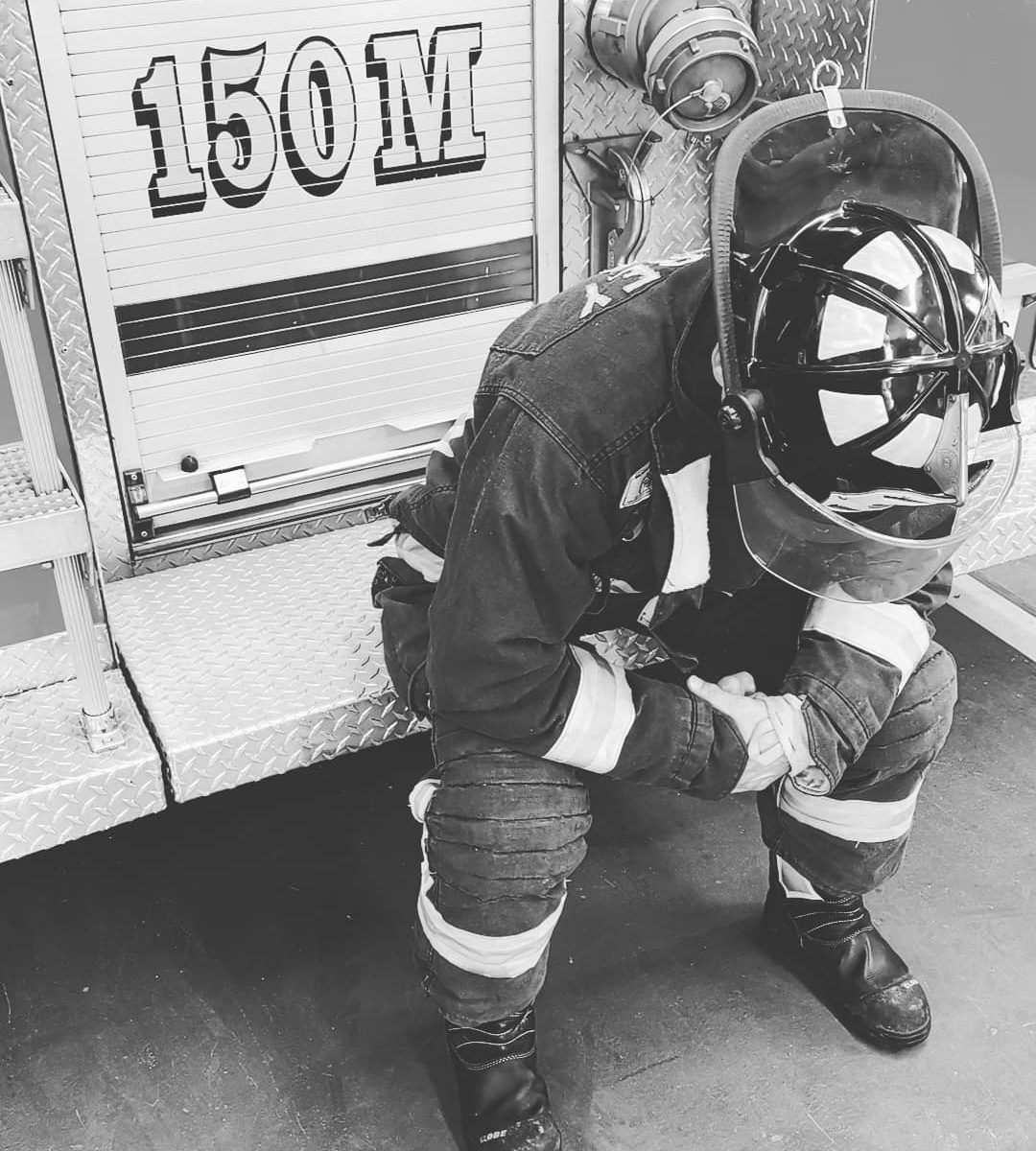SUICIDE AMONG FIREFIGHTERS
Checkout our menatlhealth podcasts at mucularmentalhealth.com
NATIONAL SUICIDE PREVENTION LIFELINE 1 800 273 8255
Click on the link below to understand how to fight depression
Take Action to Fight Depression in Men | HeadsUpGuys
PTSI (Post Traumatic Stress Injury), PTSD and MENTAL ILLNESS MAY LOOK LIKE THIS:
- cancelling plans at the last minute
- mood swings lasting hours, days or weeks
- Frequent crying or having unexplained meltdowns
- Being emotionally distant
- Extremely unmotivated, not showing or taking care of yourself
- Believing everyone dislikes them
- Believing they are a burden to their family and friends
- Attach a positive to them not being around, and talking about committing suicide
- Becoming extremely emotionally attached to new friends or relationships
- Not wanting to leave the house, staying a room and being distant
- Having outburst or losing cool over small issues
- Constantly asking if people like them, or that they are still loved
- sleeping a lot or not at all
- changing hobbies, careers or interests they used to really enjoy
- Self medicating with alcohol or drugs
- Over exercising trying to overachieve
Stress from just being a firefighter is killing us!
The stigma is making it worse and harder for firefighters to ask for help!
Studies show that firefighters are 100 times more likely to die from a heart attack during fire suppression activities than in any other job-related activity. Firefighters are also 10 times more likely to commit suicide compared to the general public. Scientists continue to study and obtain documented evidence as to why, as the reasons are not yet clear.
Stresses of the job in today’s era have clearly led to increased rates of suicide among firefighters compared to past generations. The National Firefighters Foundation reports that in any year, a department is four times more likely to experience the suicide death of a member than a line-of-duty death.
Stress, negative health changes, the physical rigors of the job and mental health challenges are taking their toll on our Firefighters,
Facts from a survey of 7000 Firefighters
95 % of all firefighters surveyed feel critical stress on the job
65 % of all firefighters surveyed are haunted by bad calls
19% have thought about committing suicide
27% self medicate with drugs or alcohol
59% have family or relationship issues
81% percent feel they will be seen as weak or not fit for duty if they were to ask for help
87% feel the stigma around mental health in the fire service is preventing them for asking for help
The brotherhood (and sisterhood) of firefighting is unique, with a strength that is often not available in many other professions. Firefighters personnel take care of their own. The firefighting culture does not do a good job of supporting colleagues when it comes to mental health issues.
However, authorities at Nova Southestern University (NSU) have suggested that the corporate culture of firefighting may need to change to create an environment which more is supportive of firefighters who are experiencing problems more difficult to see than a burn or broken leg.
NSU has a unique partnership with the Broward County Florida Sheriff’s Office, one of the largest public service agencies in the United States, providing public safety services which include firefighting. The NSU-BSO partnership has resulted in a number of valuable research studies regarding First Responders, including studies about sleep quality, protecting members from PTSD, First Responder behavioral health training and a very important study entitled, “Firefighter Suicide–The Need for Cultural Change.”
The study concludes by noting that the culture of the fire service often inhibits a member asking for help for a mental problem. Firefighters fear admitting a problem or are suspicious that accessing services will present a potential for suspension or termination from the department. The study’s abstract ends by stating, “Greater recognition of suicide within the fire service and the realization that suicide is, indeed, a problem, helps start the discussion of what can be done to prevent the continuing alarming number of firefighters who die by suicide.”
FIREFIGHTER PTSD DOCUMENTARIES

